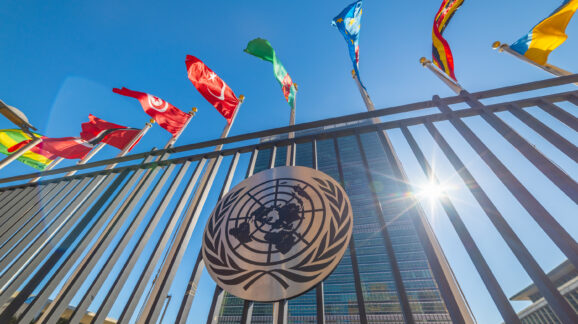There is also the constant conflating of climate policy with climate science in order to make subjective and ideological policy choices seem as if the science dictates those choices. But science informs policy, it does not provide objective answers to policy questions. However, those who disagree with the climate policy choices favored by extremists are labeled with offensive terms like deniers.
The Competitive Enterprise Institute rejects climate policies that assume Americans and humans all over the world must sacrifice their quality of living, be guilted into radical life changes, and give up on improving their standard of living in the name of fighting climate change. Even if the United States no longer existed, there would be little to no meaningful impact on global temperatures. Therefore, the myriad of extreme policies are all costs and no gain.
Using the force of government to impose policies that severely hurt humans today, especially the poor, without any meaningful benefits is not just foolish but indefensible. And when such policies are advanced, the proponents of those policies should always be expected to explain how their policy choices would meaningfully affect global temperatures. When they are unable to provide answers, which will be the case, their policy choices should be quickly dismissed.
The best way to deal with any genuine climate concerns is to remove government obstacles that hinder innovation, reduce wealth, and undermine prosperity and opportunity. Economic liberty benefits Americans generally, and at the same time, it is also the world’s best climate policy. After all, the wealthiest and most prosperous nations are far more likely to develop solutions to such problems than other nations.
Featured Posts

Blog
EPA repeals another costly rule targeting affordable and reliable coal
Though not nearly as far-reaching as the recently announced end to the Endangerment Finding, the Environmental Protection Agency’s (EPA) February 20 final rule repealing…

Blog
Trump withdraws from UN Framework Convention; ends illusion we’ll always have Paris
President Trump is withdrawing the United States from 66 intergovernmental organizations he has determined are “contrary to the interests of the United States.” This is…

News Release
CEI commends President Trump for withdrawing US from 1992 UN Framework Convention on Climate Change
President Trump announced this evening that the United States is withdrawing from many international agreements, including the United Nations Framework Convention on Climate…
Search Posts
Newsletter
Vol. II, No. 5
Politics The Administration’s Negotiating Strategy On March 4, 1998, Undersecretary of State Stuart Eizenstat reassured the House Commerce Subcommittee that the U.S. was committed to…
Op-Eds
Climate Care
<?xml:namespace prefix = o ns = “urn:schemas-microsoft-com:office:office” /> Full article available in pdf format …
Newsletter
Vol. II, No. 4
Politics Senator Inhofe Opposes Clinton’s Greenhouse Budget U.S. Senator James M. Inhofe (R-Okla.) has made it clear he will oppose the Clinton Administration’s $6.3 billion…
Newsletter
Vol. II, No. 3
Politics Clinton’s Multi-billion Dollar Plan On January 30, the Clinton administration announced a $6.3 billion emissions reduction plan. The budget for fiscal year 1999 will…
News Release
CEI Blasts Big-Government Era State of Union Message
Washington DC, January 28 –”President Clinton’s State of the Union message makes it clear that the era of big government is not over,” said…
Newsletter
Vol. II, No. 2
Politics No Stealth Implementation Rep. David McIntosh, R-Ind., directed his Government Reform and Oversight regulatory subcommittee to send letters to the Environmental Protection Agency, the…
Staff & Scholars

Sam Kazman
Counsel Emeritus
- Antitrust
- Automobiles and Roads
- Banking and Finance

Marlo Lewis, Jr.
Senior Fellow
- Climate
- Energy
- Energy and Environment

Ben Lieberman
Senior Fellow
- Climate
- Consumer Freedom
- Energy

Jacob Tomasulo
Policy Analyst
- Climate
- Energy
- Energy and Environment

Kevin D. Williamson
Writer in Residence
- Climate
- Energy and Environment